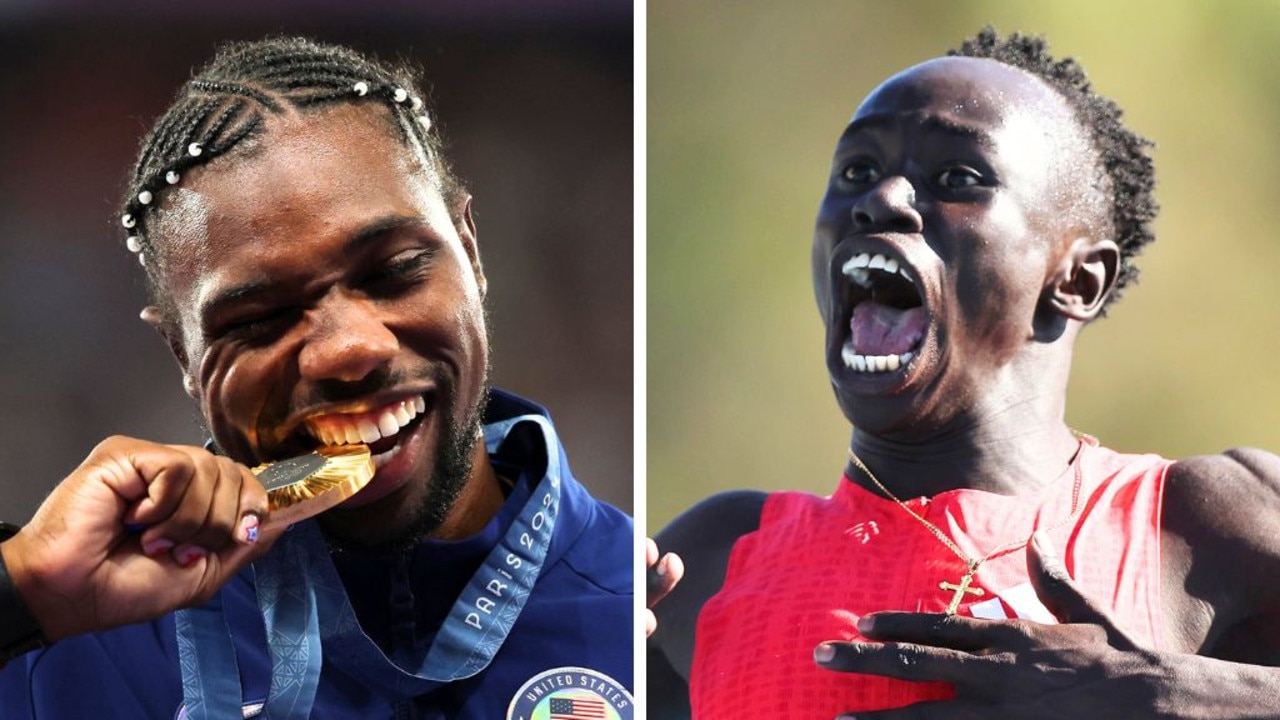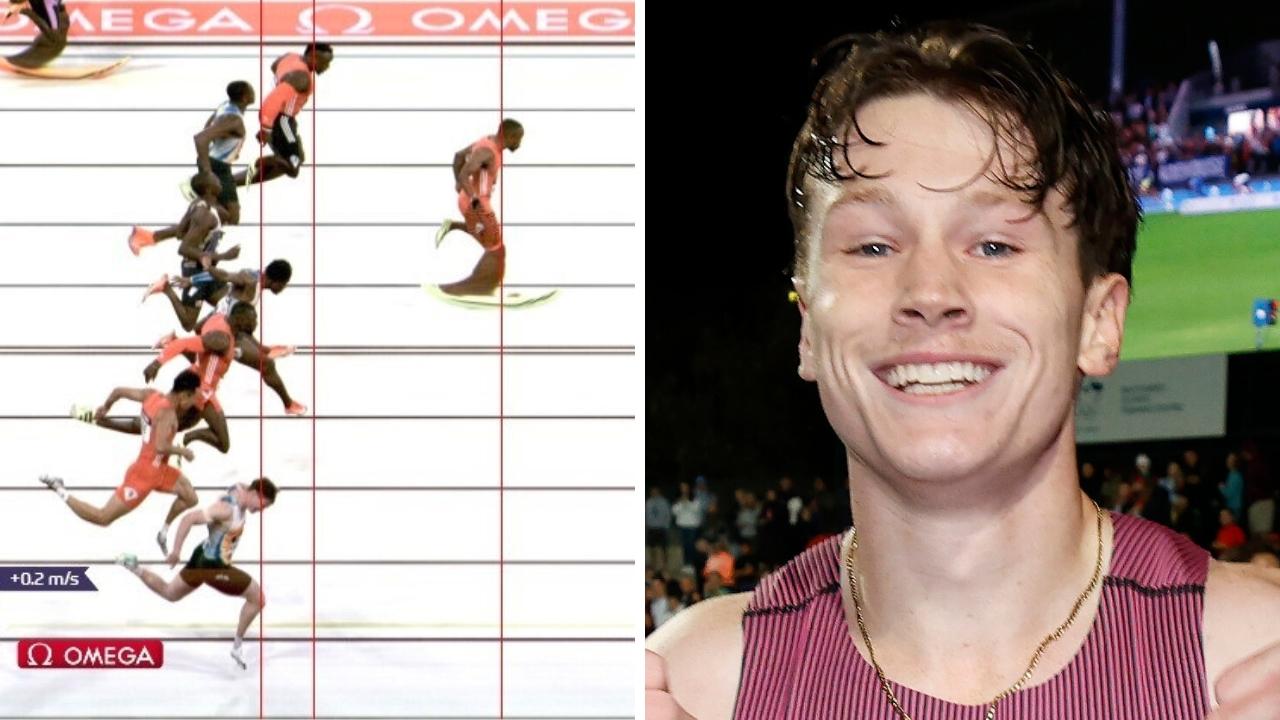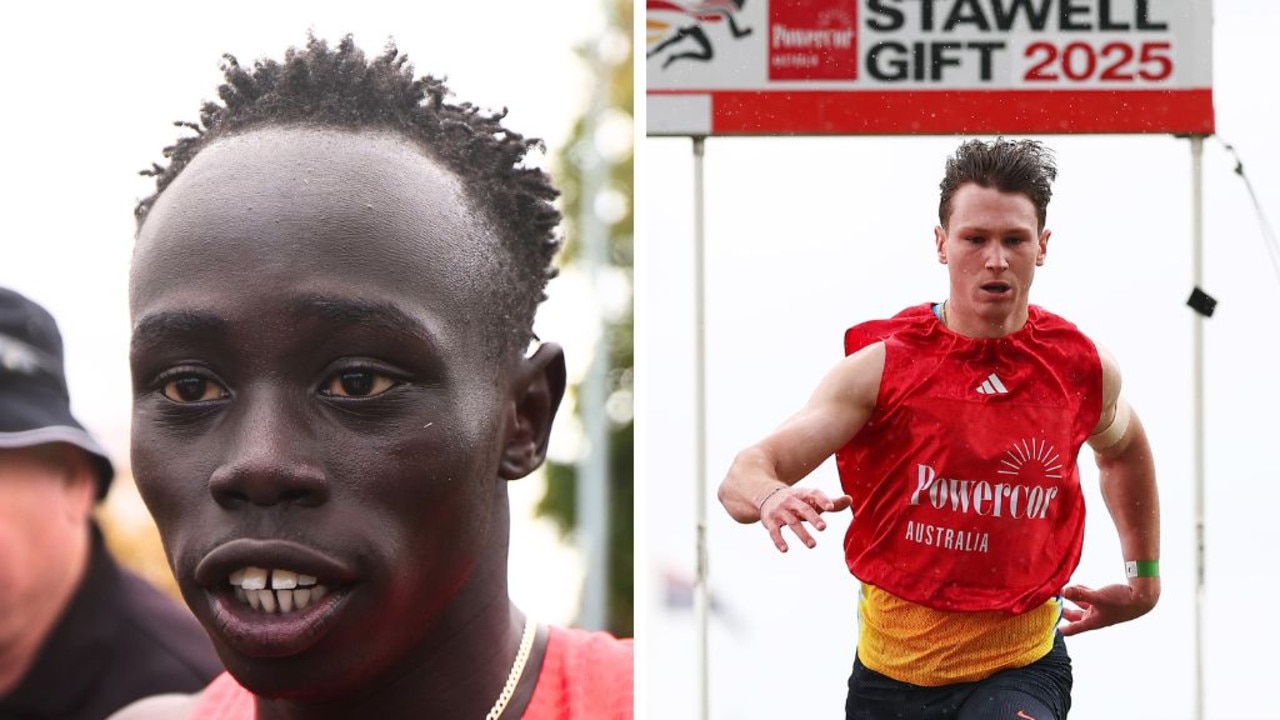Zola Budd reunites with Mary Decker — the woman she ‘tripped’ in the Olympic final
MARY Decker blamed her rival for the collision that ended her Olympic dreams in 1984 but here’s what they think now.
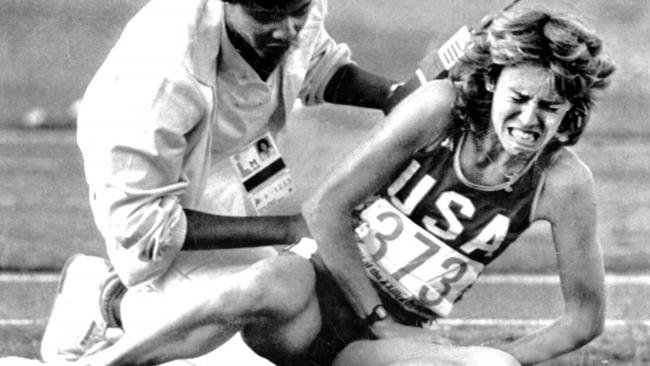
IT was one of the most shocking moments in Olympic history.
It was 1984 and Britain’s controversial hope Zola Budd went head to head with American number one Mary Decker for the 3000m Gold at the Los Angeles Olympics.
But the race ended in disaster when the pair spectacularly collided, putting Decker out of the race and causing the famously barefoot 18-year-old to finish seventh.
In a press conference afterwards a devastated Decker laid the blame squarely on Budd’s shoulders, saying: “Zola tried to cut in without being far enough ahead. I don’t think there’s any question that she was in the wrong.”
But track officials disagreed with her.
After initially disqualifying Budd for obstruction, they watched the footage from every angle and reinstated her.
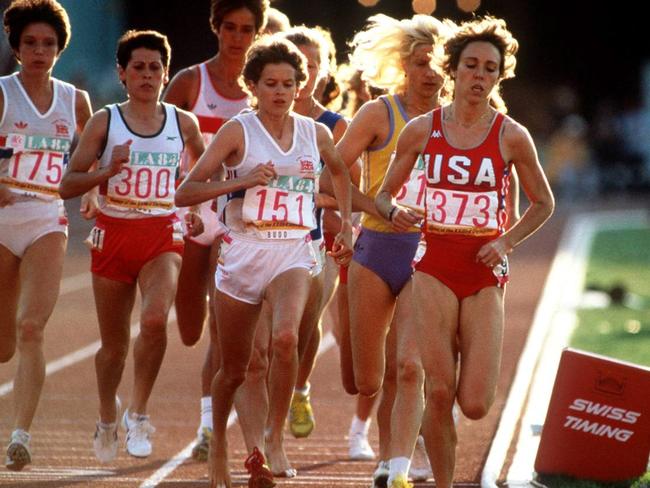
South African Budd — who had already caused a media storm in the UK when she was fast-tracked through the citizenship process so she could represent the UK — told the media she had tried to apologise to Decker after the race but she dismissed her with a “don’t bother.”
Now 32 years later, the couple have been reunited in a documentary, In The Fall, and despite an awkward opening the pair have happily moved on.
“Thank you for coming, I don’t think you know how much it means to me,” Budd said.
Decker, now 57, says she no longer blames her rival for the disastrous clash that left her in agony and shattered her Olympic dream.
“Looking back on it now, I see it as an unlucky accident,” Decker said.
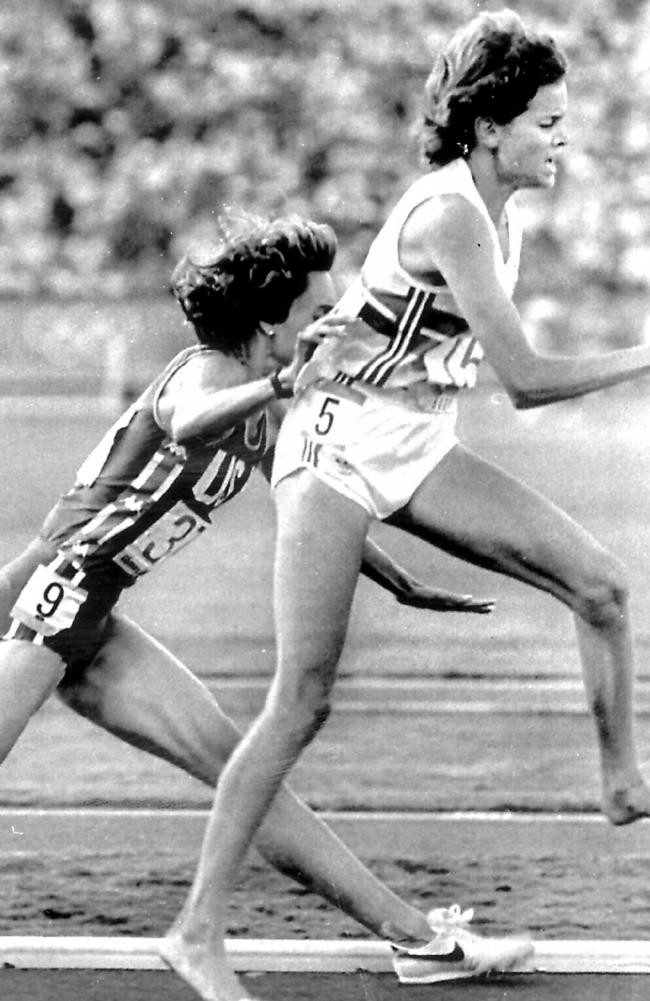
The American runner also apologised to Budd for shunning her in the tunnel and after the race, and in a separate interview she said, “I was hurting, both physically and emotionally.”
“I reacted from within, It’s a release. And I think what happened to me that day was a release of everything that went in to it.
“What occurred was very traumatic for me. It took me a while to work through that trauma.”
But she has also defended her conduct after the race, saying: “I honestly can’t say that my reactions were that horrible.
“People need to put themselves in my place and in Zola’s place and think ‘well, what would I have done’.”
Decker said taking part in the documentary was a “cathartic experience”.
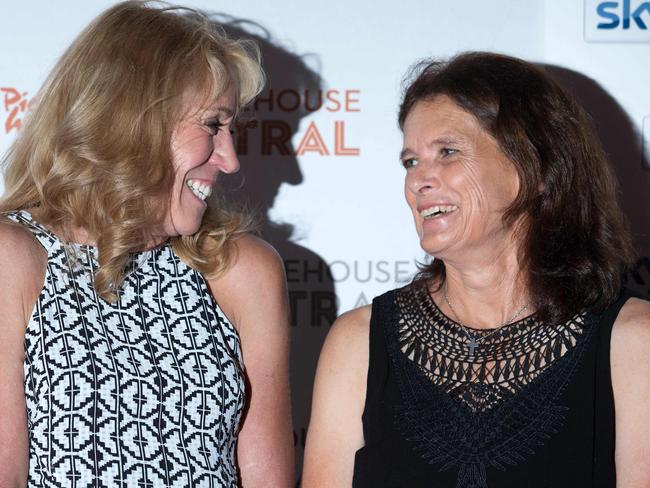
“I learned a lot more about Zola than I ever knew, and just spending a little bit of time with her during the process of the documentary I realised that, gosh, a lot of the things in our lives are very similar. It’s over 30 years later and I’m only just learning that,” she said.
Budd, now 50, returned to South Africa in 1988 and is married with three children.
She is now coaching at her local university and still runs long distance.
She and Decker got along well when making the documentary and, as well as still sharing a passion for running, they discovered their respective husbands share a birthday.
“Looking back at both our lives neither of us had a fair chance of achieving what we really wanted to. Both of us were victims of something that was beyond our control,” she said.
“I think in another world we could have been friends.”

